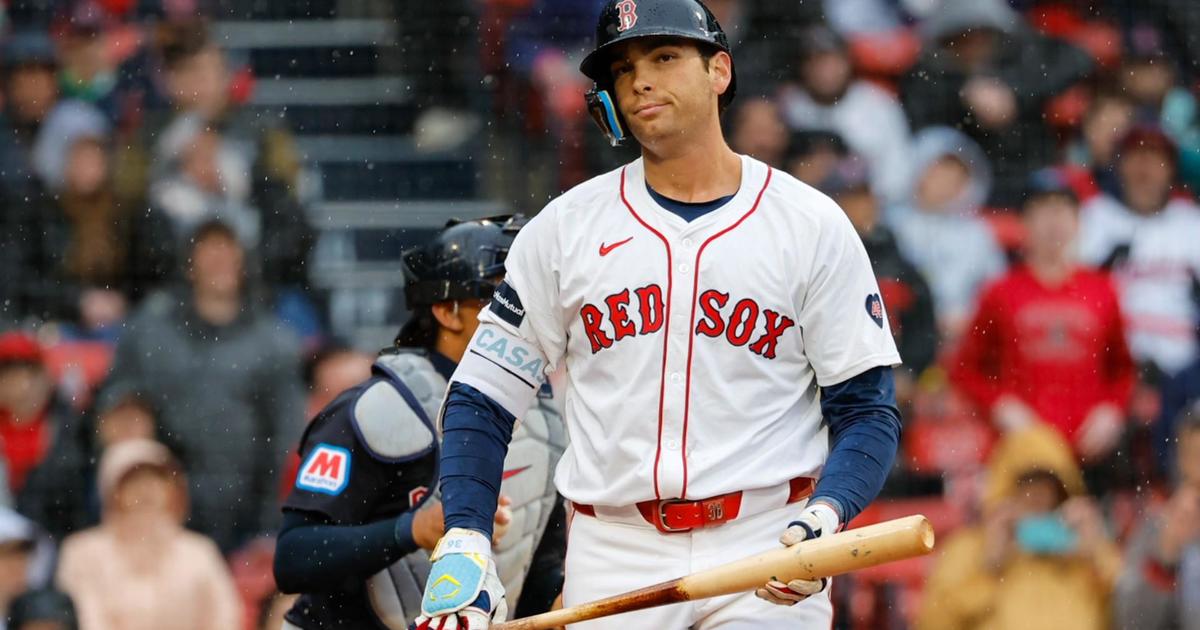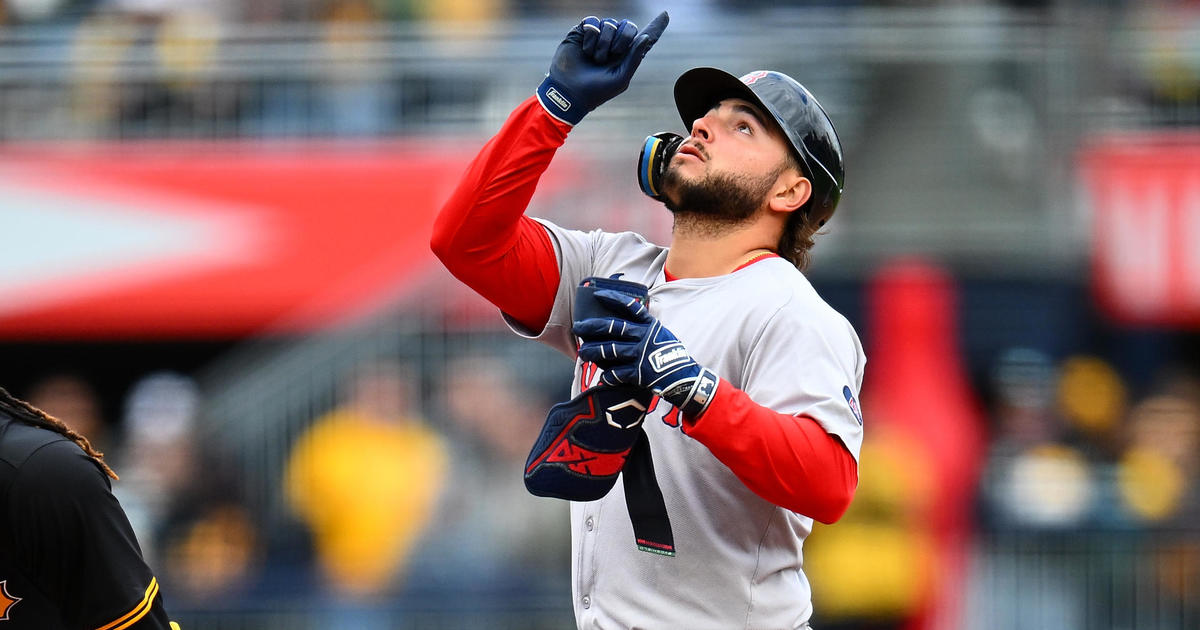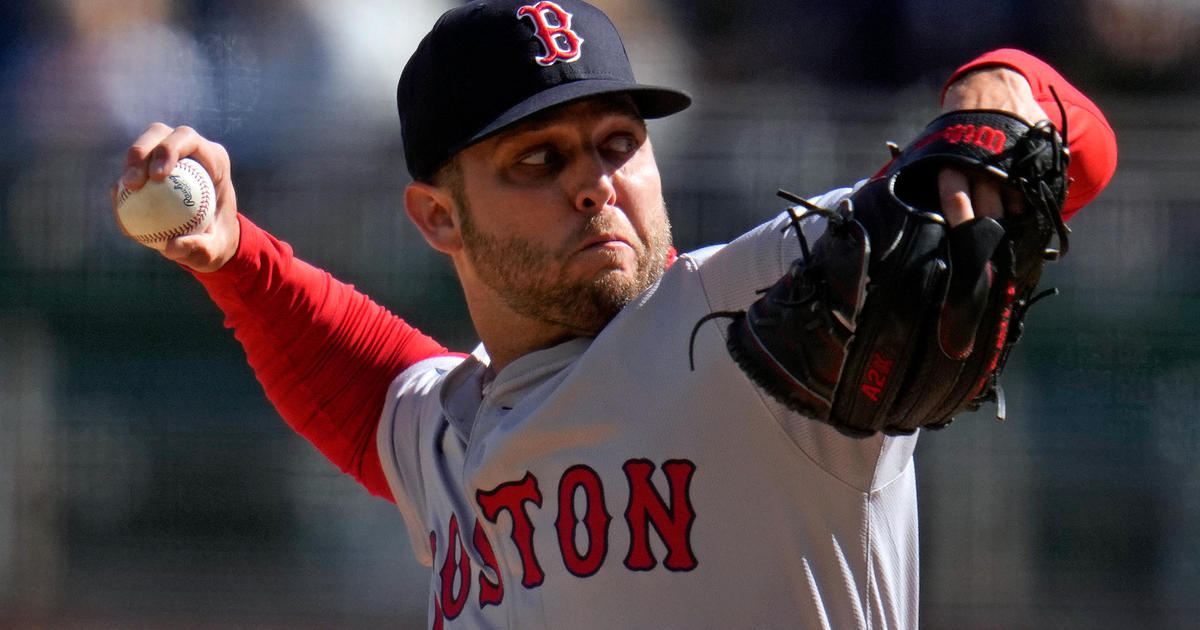In Press Conference To Explain Why He Fired John Farrell, Dave Dombrowski Doesn't Say Why He Fired John Farrell
By Michael Hurley, CBS Boston
BOSTON (CBS) -- With a curious gaggle of reporters gathered in the Fenway Park media room on Wednesday afternoon, Red Sox president of baseball operations Dave Dombrowski sat down behind a microphone to explain why the team just fired manager John Farrell.
Yet in response to the first question sent his way, Dombrowski sent this opening salvo: "I'm not going to share facts."
Well then.
Yes, Dombrowski spoke at length about the process of firing Farrell, but through the course of his lengthy session with the media. But when pressed for specifics about what he decided warranted the firing of the manager, Dombrowski pleaded the fifth.
"You weigh a bunch of different things -- basically everything is what you weigh when making a decision like this," Dombrowski elaborated. "It's a major decision. Those are things that you keep to yourself. But I'm not going to get into particular situations that really made that final decision."
Considering Dombrowski declared a strong public confidence in Farrell after the end of last season, and considering the Red Sox were eliminated in the ALDS this week for the second straight year, Dombrowski was asked specifically what happened in 2017 that required the change.
"As I said, that's really something I'm going to keep to myself," Dombrowski said, citing "a lot of different factors."
While the fan base and media has raised numerous questions about Farrell's managing ability over the past five years, Farrell did achieve a certain level of success. The Red Sox finished in last place twice, but won the division three times and won the World Series in 2013, going 432-378 overall during Farrell's tenure.
Despite the firing coming just two days after the Red Sox' season ended, Dombrowski said this was not a snap decision. But he also said he didn't contemplate it during the season.
"It's not a snap decision that [came after the Red Sox were eliminated on Monday]. That is not by any means the case," he said. "I think in my position you're always thinking about how you get better, in every different facet. So it's a thought process that takes place on everything you do. That's how it is at least for me. I will say that after our game on Monday, the game we lost, I sat down with a couple of our people and just talked in general about our circumstances. But then actually on Tuesday morning, yesterday morning, I asked our baseball staff members to get together and discuss our overall situation and listen to what people had to say on the topic of our manager spot. Wanted feedback. Basically after that, I made the decision myself to make the change."
A few minutes later, Dombrowski was asked why he didn't make a managerial change during the season, as opposed to after the season.
"Well to me any time you're making decisions ... you're in a pennant race at that point, and if you were going to say -- and I didn't contemplate it during the season -- would a change make a significant difference for you at that point?" Dombrowksi said. "I think you'd answer that question, 'Well then we need to make a change.' I just never felt that way during the season. It was not the right time to tackle it."
When asked if Farrell might have kept his job if the Red Sox had advanced to the ALCS or World Series, Dombrowski said, "Cannot answer the speculation on something like that. Really cannot, throughout the years, I cannot answer that since it didn't happen."
Dombrowski expressed that a team's failure is not all the fault of the manager, just as a championship is not all a credit to the manager. He also shared his philosophy on what success really is.
"Well, again, I think you can weigh success in a lot of different ways and that's very successful. I mean that's very good. But I think that also you just weigh a lot of different factors when you make the decision," he said. "And so to me, the ultimate success is winning a world championship. That's the ultimate success. I feel very strongly about that. But I also mentioned that that's not the reason why these types of changes -- at least in my mind -- was made. I just think it's time for a change."
Interestingly, Dombrowski was asked this question directly as a follow-up: "Was there a number of wins or a certain amount of success that would have negated the reasons that you're not mentioning why you're making a change?"
Dombrowski answered: "No."
By that logic, whatever the secret reasons might have been for Dombrowski to fire Farrell, even winning the World Series this year would not have been enough for Farrell to keep his job. If true, that's rather peculiar.
Really, what Dombrowski was doing -- or trying to do -- on Wednesday was handle a situation as professionally as possible. He was not going to sit in front of the media and itemize all of Farrell's flaws and faults. He kept his private conversations private and sought to simply issue a "we wish John the best" type of sentiment.
But here's the problem with that. In that same room exactly one year ago to the day, Dombrowski sat in front of that same collection of media members and happily announced that Farrell would remain the manager of the Red Sox.
And when it came to in-game management, which to the outside world appeared to be Farrell's greatest deficiency as a manager, Dombrowski was so bold last year to say that it didn't really matter.
"I do not feel that in-game strategy is the biggest thing as a manager," Dombrowski said last October. "I think it's important but there are other things that are probably more important. As I've often told managers, to me the most important thing for a manager is that the club plays up to their capabilities day in and day out, which means they're communicating with their players."
It's odd that a year later, with a slightly different roster and the same end-of-season results, Dombrowski decided that the 2017 club didn't play to its capabilities.
And given that explanation from last year -- that the most important thing a manager can do is to have his club play to its capablity -- it was interesting that Dombrowski was asked directly if the 2017 club underachieved or played to its potential.
"Well that's a difficult question in a sense that we won our division, we won 93 games," he answered. "Some guys didn't have as good of seasons as others, and when you don't play well this is not all put on a manager. When you don't win a world championship, it's not all the manager by any means. Some of the players didn't play as well, I could've given them some better players. We all share in those responsibilities. I think we have a very fine, talented baseball club. And I look for us to be good for years to come. But some of them will hopefully have better years next year, too. Some of them didn't have the best seasons in their career, and I think some of them are capable of having better years."
So they did underachieve ... but it's not the manager's fault ... but the manager is getting fired for it?
The answer remains a bit murky at this time.
To be clear, few in Boston are sad to see Farrell go. A legion of Red Sox fans have been clamoring for it for years. And certainly, Dombrowski's desire to maintain a level of professionalism after firing a manager is the proper way to navigate the waters. He likewise maintained that strategy when discussing players; despite an impending roster shake-up being an inevitability, he didn't heap too much blame or criticism on some players who didn't come through in 2017.
It's just that when you call a press conference in the city of Boston to explain why you fired the manager, it might be helpful to perhaps explain why you fired the manager. That's all.
You can email Michael Hurley or find him on Twitter @michaelFhurley.



